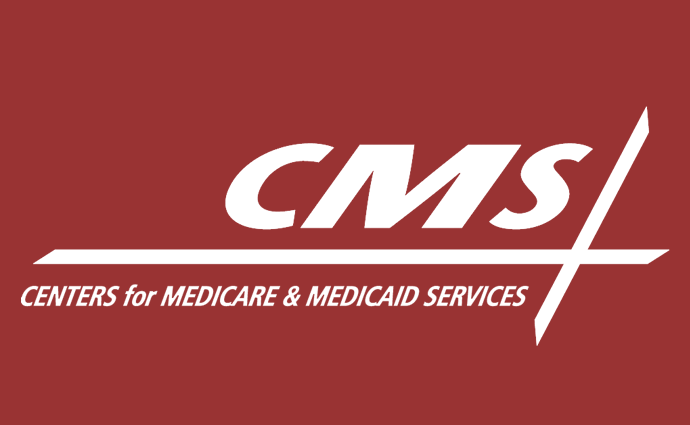Competition, Not Medicare For All, to Lower Costs, CMS Head Says
CMS Administrator Seema Verma called for Medicare reimbursement reforms that boost competition, such as site-neutral payments and alternative payment models.

Source: Xtelligent Healthcare Media
- In a speech opposing Medicare for All and single payer proposals, CMS Administrator Seema Verma outlined a different vision for lowering healthcare costs: inserting competition in the healthcare industry through Medicare reimbursement reform.
“By unleashing the power of the American consumer, market forces – the same forces that deliver better cars, better phones, and better restaurants year after year - will address the underlying cost drivers in our healthcare system,” she told attendees today at the Better Medicare Alliance (BMA) 2019 Medicare Advantage Summit.
A number of policy proposals have been put forth by Congress members and presidential hopefuls that aim to create a single payer system. The proposals would Medicare available to all or a larger share of the population.
Advocates of the policy proposals argue that Medicare for All or a single payer system would cut costs for consumers because of gains in scale and efficiency. Healthcare costs would also fall because of lower provider reimbursement. A Medicare public option would decrease hospital reimbursement by ten percent over a ten-year period, representing $774 billion less in payments, a recent KNG Health Consulting analysis found.
The Trump Administration has staunchly opposed Medicare for All and other single payer proposals, citing red tape and regulatory burdens that would force individuals to give up their private insurance coverage.
READ MORE: What a Trump Presidency Means for Value-Based Care and the ACA
“Whatever you call it – Medicare for All, Single-Payer, or something else – what we are talking about is a complete government takeover, stripping 180 million Americans of their private health insurance and forcing them into a system where Congress and bureaucrats make decisions about their care,” Verma said earlier today.
Rather than increase government intervention in healthcare, the head of CMS called for policymakers to enact Medicare reforms that address the real culprit behind rising healthcare costs: prices.
Verma cited a recent JAMA study that found the US used healthcare services similar to residents of comparable countries, yet the nation paid nearly twice as much for care. Researchers attributed the higher spending to greater prices.
“Now, some will argue that this discrepancy represents a failure of the market, necessitating a turn to more government intervention and price setting. But the reality is the opposite: we’ve never had a truly competitive market in healthcare – and a large share of the blame for that falls squarely on the government,” Verma explained.
Medicare reimbursement policies have distorted the market. For example, decades-old Medicare reimbursement policies for specialty and primary care have led to greater payments for specialists despite the industry’s recent emphasis on primary and preventative care.
READ MORE: Value-Based Payment Reform Key to Moving Forward with Value
The American Academy of Family Physicians (AAFP) has been saying for years that the Medicare Physician Fee undervalues primary care, arguing that Medicare has repeatedly failed to meet misvalued code targets.
Medicare reimbursement policies that pay hospitals more to perform services that can be safely and efficiently performed in the physician’s office are also hindering competition in healthcare, Verma said.
Medicare spent $3.1 billion more between 2012 to 2015 on four common services because providers performed them in the hospital versus independent office setting, a 2017 Physicians Advocacy Institute study found.
Additionally, the difference in payments by setting may have led to a significant uptick in acquisitions. Avalere Health recently found that hospital acquisitions of physician practices rose by 128 percent since 2012.
“And these health systems have every reason to acquire physician practices, because the government has created payment incentives that financially reward hospital systems for doing so,” Verma stated.
READ MORE: Verma: Healthcare Payment Reform to Focus on Docs, Not Hospitals
Medicare for All and other single payer proposals could lead to greater consolidation, she said, which was a conclusion also drawn by an expert from Harvard Medical School in a recent JAMA Viewpoint article.
“[W]ithout competition in a market, consumers have fewer choices, prices go up, and incentives to improve quality go down,” Verma said.
To target prices, Verma suggested greater use of site-neutral payments, which CMS recently extended to clinic visits in the hospital setting. She also supported the use of alternative payment models like the ones recently proposed for chronic kidney disease and radiation oncology.
Additionally, the head of CMS highlighted how Medicare Advantage has boosted competition in healthcare, leading to 600 new plans for Medicare beneficiaries and six percent lower premiums.
According to Verma, Medicare Advantage works “because plans are competing on the basis of cost and quality, driving towards value and increasing choices for beneficiaries.” The Trump Administration has also rolled back Medicare Advantage regulations, allowing payers to offer innovative benefits, like telehealth and new supplemental benefits that address social determinants of health.
“We are ensuring that Medicare Advantage plans can do what they need to do to lower cost and improve health outcomes, without the government getting in the way,” she stressed.
